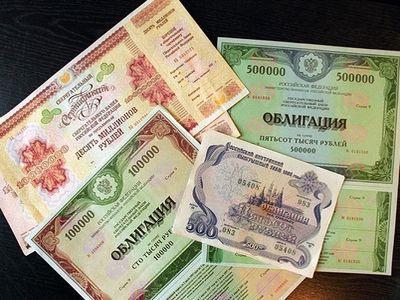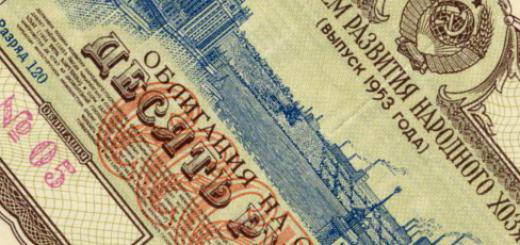A security represents a document confirming property rights, and is a physical object. The concept of uncertified securities implies information on the ownership right of a part of the capital displayed in the register.
What are financial instruments?
Financial instruments - objects of law with which transactions are carried out. For them, the domestic Civil Code has an explanatory definition:
- Material securities are inherent in documentary securities, which includes the specified details, par value, name of the issuer and other information.
- Non-documentary securities (we consider the types below) are distinguished by the absence of a material form. They are characterized by property law, which is fixed in the established register.

Uncertificated shares
In 2014, the Civil Code defined so-called uncertified shares. By law, any financial instrument has a number of characteristic features:
- The manifestation of private rights is one of the differences, which implies the direct purpose of all kinds of shares, bills, certificates, bonds, etc.
- Indication of details with the availability of value, as well as the validity period, which allows you to take part both in tenders and in other civil law relations.
- Credibility is no less important, since the rights that a security gives are derived from its contents and name. The controversial situations that arise are related only to the exercise by the debtor of his rights or the refusal to properly perform his duties.
- Another sign is documentary evidence. Any property relations should have a documentary basis, for example, they can be displayed in securities, registers, issuance decisions, etc.

It is noteworthy that until 2014, uncertified securities did not have a clue. In the legislation of the Russian Federation they were defined as a paper document. The civil code of our country was loyal to the existence of electronic commerce and even regulated it, but a number of countries did not recognize such tools as existing assets. This was because the main attribute of a particular stock or bond was the documentary form.
Type separation
Due to the fact that uncertified securities are not characterized by material embodiment, they cannot be transferred to the holder and cannot be provided to the issuer. It follows that bearer shares and bonds should be issued as tangible documents. Only order, as well as registered financial instruments can do without a physical basis. In the circulation of our country, certain types are used.
Registered shares
Registered shares - uncertificated securities that are part of the capital, which are usually sold to a specific person or company. Owner's initials are displayed directly on stocks and in accounting registers. By endorsement, the transfer of rights to existing property takes place. Registered shares are considered indivisible. In some cases, trading in such assets without the issuer's decision is prohibited. What other paperless form of securities exists?

Investment shares
Investment units - documents that indicate ownership of a part of the property of the Unit Investment Fund.Any information on the amount is on the certificate forms or in the registry. You can transfer them using an endorsement.
Registered bonds
These uncertificated securities are debt obligations of the issuer to any person whose name is indicated in the document or recorded in the register.
Debt Receipts
Debt receipts or promissory notes, whose owner is listed in the register, is prohibited to transfer to third parties. An exception is the procedure for applying the assignment of rights.
The electronic form can not be applied to all order and registered assets. Registered deposits and checks refer to this type of instrument that cannot be used for free trade. Due to this, there is no need to put them up for sale in electronic format. 
Mortgages are also registered documents, but according to existing laws only their paper form is allowed. Over the course of several years, disputes have been ongoing, due to which, probably, in the near future the mortgage will be approved electronically.
This is what a registered uncertified security is.
Derivatives are also considered assets. These tools are allowed to be implemented in the same way as others, but the object of rights in such situations are exclusively shares. In electronic form, trading in derivative financial resources is carried out all over the world. This is considered one of the fastest and most appropriate types of transactions.
Securities of the second order and derivatives include options and depositary receipts. They exist to transfer rights that arise from primary bonds and stocks. Electronic bidding is used to achieve security and speed of transactions, as well as to simplify the procedure and comfort.
Transactions with uncertified securities
Securities that are issued in electronic form are usually included in the register, and the decision to issue them is taken in the manner prescribed by law. The issuer is responsible for securing the asset, this is always indicated in the decision on the issue. The holder’s right is recorded on the owner’s securities account.
The way of accounting for uncertificated shares is identical to the method of registration of documentary information. Due to the fact that the entry in the custody account and the registry is the only confirmation that the holder can claim his rights, stringent requirements are made in the accounting process. 
In 2013, the obligation to compile registers of securities was transferred to outside organizations, issuers, in turn, were exempted from this need. Any activity of registrars involves licensing, they are also responsible for maintaining data and accuracy. Conducting a transaction with financial instruments that do not have a documentary form consists of a system for entering new information data into the register.
In the registers, the following details must be indicated:
- Issuer's details;
- name of the asset;
- rights, content and face value;
- validity;
- information about the issuer;
- serial numbers;
- signatures of authorized persons.
Any actions with assets that do not have paper media can be carried out only through electronic trading. To conduct a transaction, an electronic signature is required, which is the identity card of the owner. Certification authorities throughout the country are issuing electronic digital signatures. The form and schedule for the holder to participate in tenders are prescribed and determined by the legislation of the Russian Federation. What else does the concept imply paperless security?
An encumbrance as a ban on the disposal of one's property
Any restrictions imposed on uncertified papers must be entered into the register by an authorized person.In accordance with the law, they are initiated by the holder himself or can be appointed independently by the regulatory authorities. An encumbrance means depriving an owner of the right to dispose of his property.  In situations with securities, this can lead to a ban on transactions with a number of any assets, as well as to absolute blocking of the holder’s account. Types of encumbrances can be:
In situations with securities, this can lead to a ban on transactions with a number of any assets, as well as to absolute blocking of the holder’s account. Types of encumbrances can be:
- partial restriction on operations initiated by the owner himself;
- arrest;
- foreclosure;
- pledge.
In cases where a ban on the disposal of his property arises on the initiative of the holder himself, he is required to provide the registrar with written permission. A foreclosure may be initiated by authorized bodies, namely: courts of all levels. At the initiative of the holder, the entry of burden information in the form of a pledge is required.
In cases where the owner of the assets did not take care of changing the information, the person at whose address the encumbrance was established has the full right to apply to the court. The court ruling on the imposition of restrictions will order the registrar to enter this information into the registry.
Any information on all transactions with uncertificated securities is stored with the registrar. In the event of loss of such information by him, any rights that the holders had are recognized as invalid until they restore the credentials, and the court confirms their true authenticity. 
The history of the securities market in Russia has repeatedly indicated that the reliability of an asset does not at all depend on the form of financial instruments. Documentary or non-documentary securities contain all information required by law. And this gives a guarantee for the realization of the rights of the holder according to the type of its financial document. Profitability and reliability are determined on the basis of financial analysis and are absolutely independent of the form of the auction.
We examined documentary and non-documentary securities.